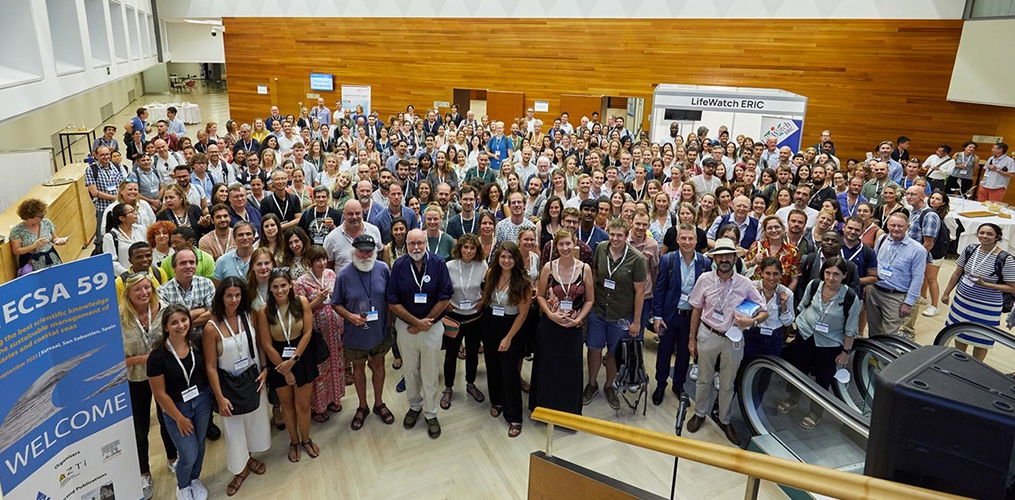
ECSA59 was the first face-to-face meeting of the Estuarine and Coastal Sciences Association in three years and attracted 460 participants to the Kursaal Conference Centre in Donostia-San Sebastián, Spain from 5–8 September 2022. Under the theme of ‘Using the best scientific knowledge for the sustainable management of estuaries and coastal seas’, scientists from all over the world discussed urbanisation, remote sensing, social ecology, governance, resilience to global warming, modelling food webs and much, much more.
Professor Angel Borja of the Basque Research and Technology Alliance (AZTI) as Conference Chair noted in his opening address how much things have changed in the 50 years since ECSA’s first papers were published in 1962. 150 years after Ferdinand Magellan’s expedition first circumnavigated the world, we are all now concerned that anthropogenic changes are impacting estuarine and coastal waters more than other domains, and the only way to set up sustainable management strategies is to provide decision-makers with the best scientific knowledge.
Diverse aspects of that scientific knowledge were presented in five keynote plenaries and 44 parallel sessions over the four days of ECSA59. LifeWatch ERIC sponsored the conference and its stand proved very popular; early-career researchers in particular were keen to learn more about its open data, open-access Virtual Research Environment, the constantly-evolving result of the Infrastructure’s first internal project, which focuses on the topic of invasive alien species. The event concluded with field trips and the start of the AZTI Summer School. The next ECSA conference will be held in 2024.
Visitors to stand included: Mike Elliott, University of Hull; John Humphries, ECSA president-elect; Irene Prete, Università del Salento; Henrique Cabral, INRAE, France; Professor Omar Defeo, Universidad de la República de Uruguay; Patrick L. Friend, Deep-time Digital Earth; Irene Guarnieri, CNR-ISMAR; Nathalie Caill-Milly, Ifremer, France; Sonagnon Olivier Tokpanou, Université Laval, Quebec; Grzegorz Rozynski, Polish Academy of Sciences; Marina Dolbeth, University of Porto; and Heliana Teixeira, University of Aveiro.